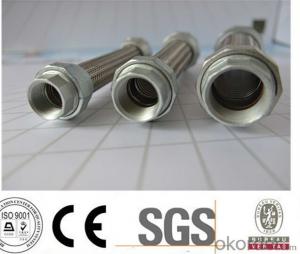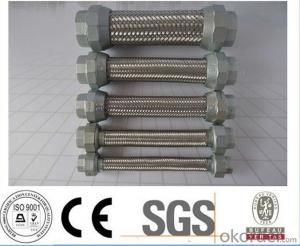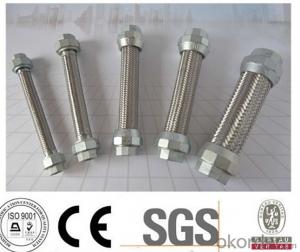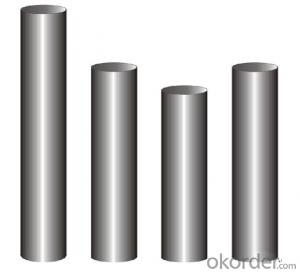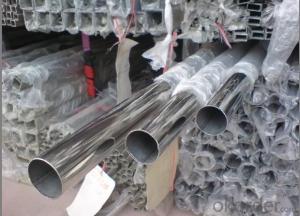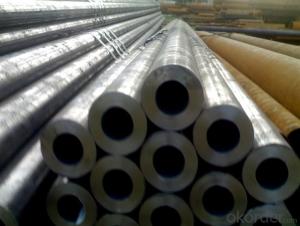Stainless Steel Braid Hose with 1/2'' Fittings
- Loading Port:
- Tianjin
- Payment Terms:
- TT OR LC
- Min Order Qty:
- 1000 pc
- Supply Capability:
- 100000 pc/month
OKorder Service Pledge
OKorder Financial Service
You Might Also Like
Item specifice
Stainless Steel Braid Hose with 1/2'' Fittings
Applications of Stainless Steel Braid Hose with 1/2'' Fittings:
--Refueling system
--Chemical and pharmaceutical industry
--Industrial hydraulic systems
--Air conditioners in industrial and construction –site vehicles
--Food and beverage industry
--Special and standard industrial applications
--Water and cleaning management
Features of Stainless Steel Braid Hose with 1/2'' Fittings:
1. )O. D.: 13-18MM 0.2-3M long
2. )Nut.: Nickel/Chrome Plated Brass (Zinc / Iron / Aluminum is available)
3. )Size Of Nut.: Female&Male 1/2''; 3/4''; 3/8''; 7/8''; 5/16'', and M10...
4. )Insert.: Brass (Zinc / Aluminum / Plastic is available)
5. )Inner tube.: Rubber/ EPDM/PVC
6. )Covered Material: Stainless Steel 201, 301, 304 /Aluminium Wire
7. )Working Pressure: 5Kg-15Kg
8. )Temperature: 0-92° C
9. )Quality Assurance: 3 years
RemarkAPPLICATION: HOUSEEHOLD WARE, BATHROOM WARE, SHOWER HOSE
PAYMENT: T/T, L/C
DELIVERY TIME: 20DAYS OR 30DAYS AFTER RECEIVED 30% DEPOSITS
MOQ: 5000PCS
ODM&OEM IS ACCEPTABLE
PackageInner: PP bag /Blister packing Outer: Carton box
Specifications of Stainless Steel Braid Hose with 1/2'' Fittings:
NO | I.D | Refer to O.D | Working pressure | Burst pressure | approximate Weight | |||||
(inch) | (mm) | (inch) | (mm) | MPa | Psi | MPa | Psi | kg/m | lbs/ft | |
1 | 1/8 | 3.2±0.2 | 0.35 | 9±0.3 | 2.06 | 300 | 8.27 | 1200 | 0.078 | 0.12 |
2 | 5/32 | 4±0.2 | 0.4 | 10±0.3 | 2.06 | 300 | 8.27 | 1200 | 0.092 | 0.14 |
3 | 3/16 | 4.8±0.2 | 0.43 | 11±0.3 | 2.06 | 300 | 8.27 | 1200 | 0.108 | 0.16 |
4 | 1/4 | 6.3±0.3 | 0.5 | 12.7±0.3 | 2.06 | 300 | 8.27 | 1200 | 0.134 | 0.2 |
5 | 5/16 | 8.0±0.3 | 0.56 | 14±0.3 | 2.06 | 300 | 8.27 | 1200 | 0.147 | 0.22 |
6 | 3/8 | 9.5±0.3 | 0.63 | 16±0.4 | 2.06 | 300 | 8.27 | 1200 | 0.182 | 0.27 |
7 | 15/32 | 12±0.3 | 0.75 | 19±0.5 | 2.06 | 300 | 8.27 | 1200 | 0.238 | 0.35 |
8 | 1/2 | 12.7±0.4 | 0.78 | 20±0.5 | 2.06 | 300 | 8.27 | 1200 | 0.262 | 0.39 |
9 | 5/8 | 16±0.4 | 0.94 | 24±0.5 | 1.03 | 150 | 4.12 | 600 | 0.351 | 0.52 |
10 | 3/4 | 19±0.4 | 1.13 | 28.8±0.5 | 1.03 | 150 | 4.12 | 600 | 0.515 | 0.77 |
11 | 1 | 25.4±0.5 | 1.38 | 35±0.6 | 1.03 | 150 | 4.12 | 600 | 0.637 | 0.95 |
Images of Stainless Steel Braid Hose with 1/2'' Fittings:
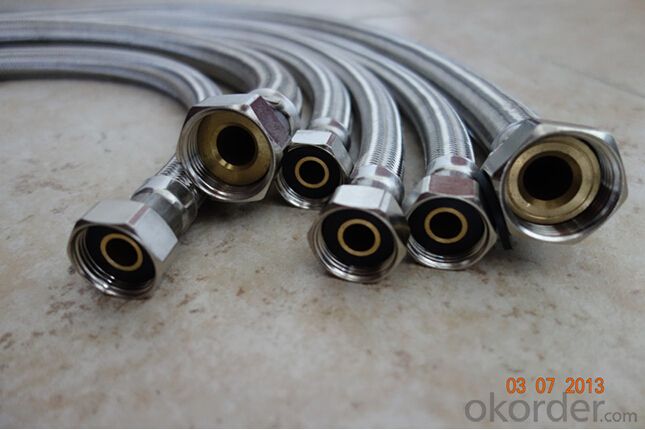
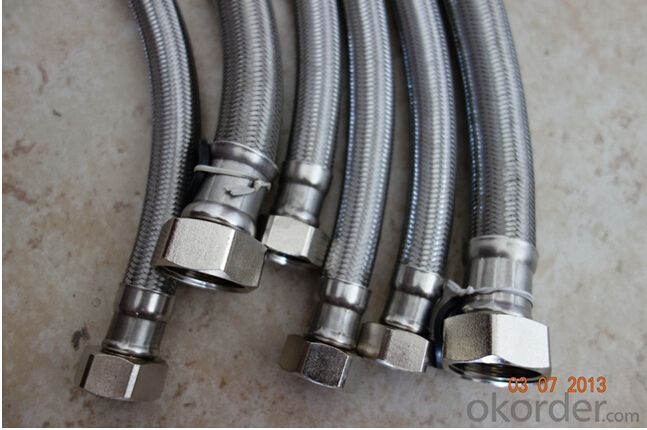
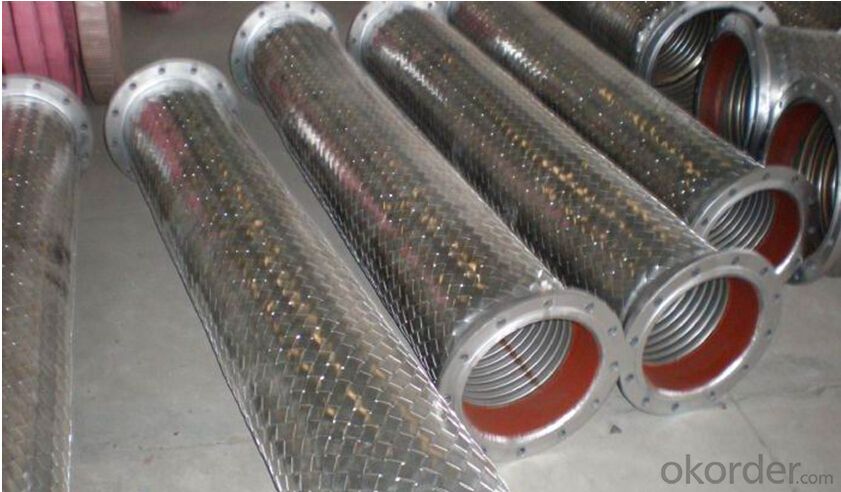
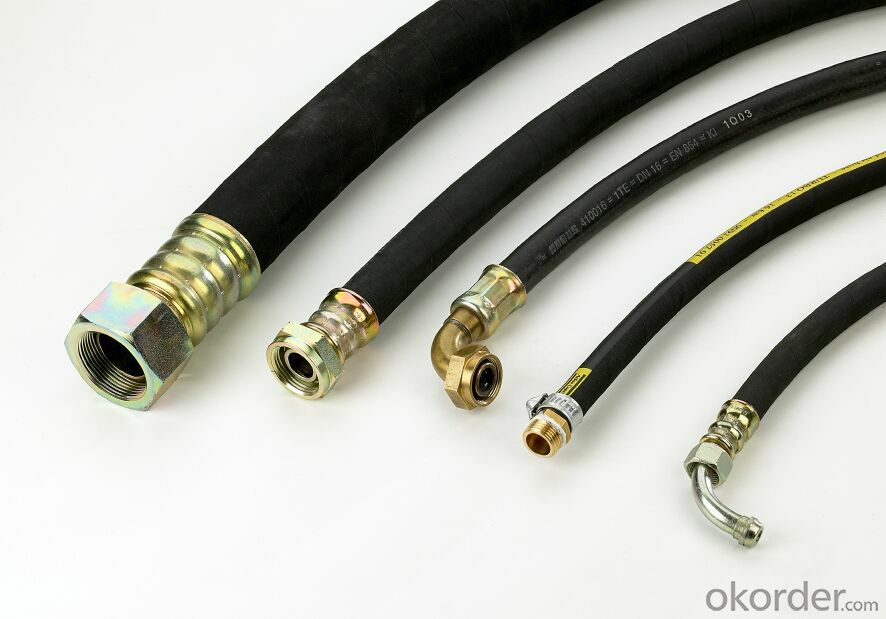
Package of Stainless Steel Braid Hose with 1/2'' Fittings:
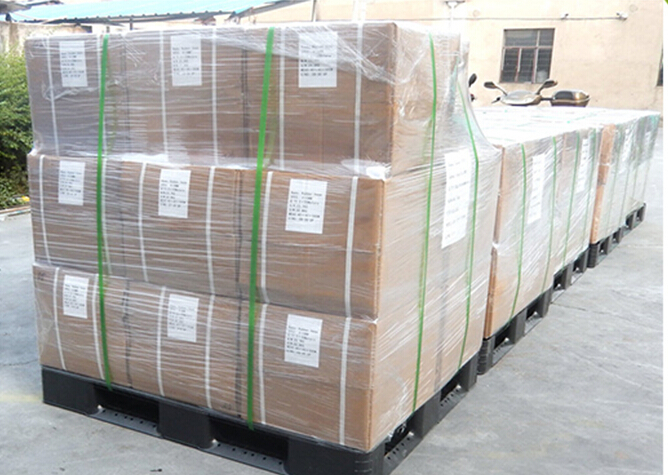
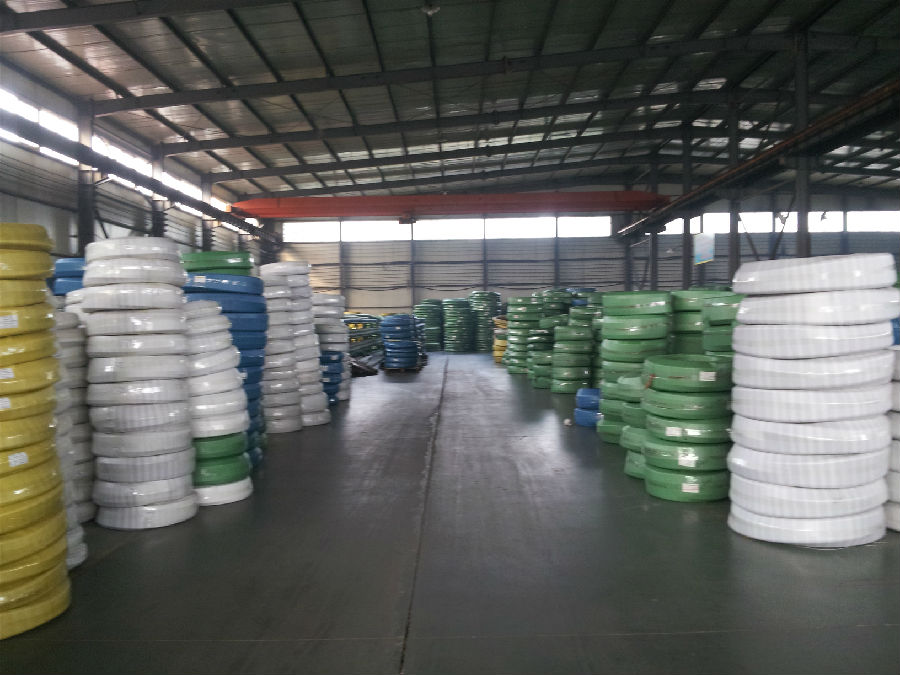
FAQ of Stainless Steel Braid Hose with 1/2'' Fittings:
Who we are:
Answer: We CNBM is a Chinese state-owned enterprise ranked 267th among the Global Fortune 500, as the largest building materials company,we have over 300 affiliated companies,and so many production lines and branch office distribute in China.
2. About our quality:
Answer: Every product needs to be quality proved before shipping.
3. About our service:
Answer: We could gurantte that we can reply you in 2 working hours.
- Q:Can stainless steel pipes be used for pharmaceutical industries?
- Yes, stainless steel pipes can be used for pharmaceutical industries. Stainless steel is a common material used in the pharmaceutical industry due to its excellent corrosion resistance, durability, and hygienic properties. It is resistant to chemicals, high temperatures, and moisture, making it suitable for various applications within pharmaceutical manufacturing processes. Stainless steel pipes are often used for transporting and storing pharmaceutical products, as well as for the distribution of purified water, steam, and other fluids. Additionally, stainless steel is easy to clean and maintain, which is crucial in ensuring the cleanliness and sterility required in pharmaceutical facilities.
- Q:How do you join stainless steel pipes together?
- To join stainless steel pipes together, there are several methods available, depending on the specific requirements and application. 1. Welding: Welding is the most common and widely used method for joining stainless steel pipes. It involves the application of heat to melt the material, forming a strong and durable bond. Different welding techniques like TIG (Tungsten Inert Gas) or MIG (Metal Inert Gas) welding can be used for this purpose. 2. Compression fittings: Compression fittings are a popular choice for joining stainless steel pipes, especially in plumbing applications. These fittings consist of a compression nut and a ferrule that are tightened onto the pipe, creating a secure and leak-proof connection. 3. Flanges: Flanges are used when a more robust connection is required, such as in high-pressure or high-temperature applications. Two stainless steel pipes are joined together by bolting flanges at the ends, creating a tight and reliable connection. 4. Threaded connections: Stainless steel pipes can also be joined using threaded connections, where one end of the pipe is threaded and the other end is fitted with a threaded pipe fitting, such as a union or nipple. This method is commonly used for smaller diameter pipes or in situations where disassembly may be required. 5. Clamps and couplings: Clamps and couplings are used to join stainless steel pipes temporarily or in situations where frequent disassembly is required. These devices clamp around the pipes and are tightened using bolts or other mechanisms, creating a secure connection. It is important to consider the specific requirements, such as pressure, temperature, and corrosion resistance, when choosing the appropriate method to join stainless steel pipes. Consulting with a professional or referring to industry standards and guidelines can ensure a successful and reliable pipe connection.
- Q:Are stainless steel pipes magnetic?
- No, stainless steel pipes are generally not magnetic.
- Q:How can I clean the stainless steel tube?
- Can be soaked in soapy water and cleaned with a mild sponge pad. After washing, remember to rinse and dry the stainless steel.
- Q:What are stainless steel pipes used for?
- Stainless steel pipes are widely used in various industries for their exceptional durability, corrosion resistance, and high strength. They find extensive applications in plumbing systems, oil and gas industries, chemical processing plants, food and beverage processing, pharmaceutical industries, and automotive manufacturing, among others. In plumbing systems, stainless steel pipes are favored for their ability to withstand high pressure and temperature, making them suitable for transporting water, gas, and other fluids. They are also commonly used in sewage and drainage systems due to their resistance to corrosion and chemical substances. In the oil and gas industries, stainless steel pipes are used for transporting petroleum products, natural gas, and other fluids under high pressure and extreme temperatures. Their corrosion resistance properties make them indispensable in offshore and onshore drilling operations, refineries, and petrochemical plants, ensuring the safe and efficient transportation of these substances. Chemical processing plants rely on stainless steel pipes for their resistance to chemical reactions and high temperatures. They are used to transport various corrosive chemicals and gases without the risk of contamination or leakage. Additionally, stainless steel pipes are utilized in heat exchangers, reactors, and other equipment that require corrosion-resistant materials. The food and beverage industry also heavily relies on stainless steel pipes due to their hygiene and sanitary properties. They are used for conveying various food products, such as milk, wine, beer, and other liquids, without altering their taste or quality. Stainless steel pipes are easy to clean, maintain, and sterilize, making them ideal for this industry. In the pharmaceutical sector, stainless steel pipes play a crucial role in conveying various drugs, chemicals, and sterile fluids. They meet the stringent requirements of the industry by ensuring product purity, preventing contamination, and offering resistance to corrosion and temperature extremes. Moreover, stainless steel pipes are utilized in automotive manufacturing for their structural strength and resistance to heat and corrosion. They are used in exhaust systems, fuel lines, and other components where durability and resistance to extreme conditions are necessary. Overall, stainless steel pipes are versatile and essential in numerous industries, providing the perfect combination of strength, durability, and corrosion resistance needed for a wide range of applications.
- Q:What is the internal lining used for stainless steel pipes?
- The internal lining used for stainless steel pipes can vary depending on the specific application and intended use of the pipes. Some common options for internal linings in stainless steel pipes include epoxy coatings, ceramic linings, and plastic or polymer linings. These linings are used to provide corrosion resistance, enhance the smoothness of the pipe's interior surface, and protect the stainless steel from chemical reactions or wear.
- Q:Are stainless steel pipes suitable for chemical storage tanks?
- Yes, stainless steel pipes are typically suitable for chemical storage tanks. Stainless steel is highly resistant to corrosion and can withstand the harsh chemicals stored in tanks, making it a preferred material for chemical storage applications.
- Q:How do stainless steel pipes compare to PVC-U pipes?
- Stainless steel pipes have several advantages over PVC-U pipes. Firstly, stainless steel pipes are much stronger and have a higher resistance to impact and pressure, making them suitable for high-pressure applications. PVC-U pipes are more susceptible to cracking or bursting under high pressure. Secondly, stainless steel pipes have a higher temperature resistance than PVC-U pipes. They can withstand much higher temperatures without deforming or losing their structural integrity. PVC-U pipes, on the other hand, have lower temperature limits and can become brittle or soften under extreme heat. Additionally, stainless steel pipes have better corrosion resistance compared to PVC-U pipes. They can withstand exposure to various chemicals, acids, and other corrosive substances without degradation. PVC-U pipes are prone to chemical attack and may deteriorate over time if exposed to certain chemicals. However, it is important to note that stainless steel pipes are generally more expensive than PVC-U pipes, which can be a factor to consider when choosing between the two. Ultimately, the choice between stainless steel pipes and PVC-U pipes depends on the specific requirements of the application and the budget constraints.
- Q:Do stainless steel pipes require any special maintenance?
- Stainless steel pipes are renowned for their durability and corrosion resistance, eliminating the need for any special maintenance. Nevertheless, it is advised to carry out regular cleaning and inspections to guarantee optimal performance and long-lasting use. This can be effortlessly achieved by employing mild soap and water or a gentle cleaner to eliminate any accumulated dirt or grime from the surface. Moreover, it is crucial to thoroughly examine the pipes for any indications of damage or leaks in order to promptly address any potential problems. In conclusion, stainless steel pipes demand relatively little maintenance and, if properly cared for, can offer several years of dependable service.
- Q:Can stainless steel pipes be used in the renewable energy industry?
- Certainly, stainless steel pipes can be utilized in the renewable energy sector with great effectiveness. Stainless steel is an incredibly versatile and durable material that presents numerous advantages for diverse applications within renewable energy systems. One of the primary advantages of employing stainless steel pipes lies in their exceptional resistance to corrosion. This attribute renders them highly suitable for deployment in environments where exposure to moisture, chemicals, and other corrosive elements is prevalent. For instance, solar power plants, geothermal energy systems, and offshore wind farms benefit immensely from the ability of stainless steel pipes to endure these harsh circumstances and maintain their structural integrity over extended periods. Consequently, the frequency of repairs and replacements is minimized. Another merit of stainless steel pipes is their excellent strength-to-weight ratio, facilitating the design of lightweight and efficient structures for renewable energy endeavors. These pipes can be utilized in constructing support frames, structures, and pipelines for wind turbines, solar thermal collectors, and biomass power plants, among other applications. Their strength and durability contribute to the overall reliability and longevity of renewable energy systems. Moreover, stainless steel pipes exhibit resistance to extreme temperatures, making them highly appropriate for deployment in high-temperature scenarios like concentrated solar power systems. These pipes can withstand the intense heat generated by solar receivers without suffering deformation or degradation, ensuring the efficient transfer of heat within the system. In addition to their mechanical properties, stainless steel pipes are also hygienic and environmentally friendly. They are easily cleaned and maintained, thereby reducing the risk of contamination and ensuring the purity of fluids utilized in renewable energy processes. Furthermore, stainless steel is a recyclable material, aligning perfectly with the sustainability principles of the renewable energy industry. In summary, stainless steel pipes offer a dependable, long-lasting, and cost-effective solution for a wide range of applications within the renewable energy sector. Their corrosion resistance, strength, temperature tolerance, and environmental benefits make them an exceptional choice for fluid transportation, structural support, and the ability to withstand the demanding conditions encountered in renewable energy systems.
1. Manufacturer Overview |
|
|---|---|
| Location | |
| Year Established | |
| Annual Output Value | |
| Main Markets | |
| Company Certifications | |
2. Manufacturer Certificates |
|
|---|---|
| a) Certification Name | |
| Range | |
| Reference | |
| Validity Period | |
3. Manufacturer Capability |
|
|---|---|
| a)Trade Capacity | |
| Nearest Port | |
| Export Percentage | |
| No.of Employees in Trade Department | |
| Language Spoken: | |
| b)Factory Information | |
| Factory Size: | |
| No. of Production Lines | |
| Contract Manufacturing | |
| Product Price Range | |
Send your message to us
Stainless Steel Braid Hose with 1/2'' Fittings
- Loading Port:
- Tianjin
- Payment Terms:
- TT OR LC
- Min Order Qty:
- 1000 pc
- Supply Capability:
- 100000 pc/month
OKorder Service Pledge
OKorder Financial Service
Similar products
New products
Hot products
Related keywords
